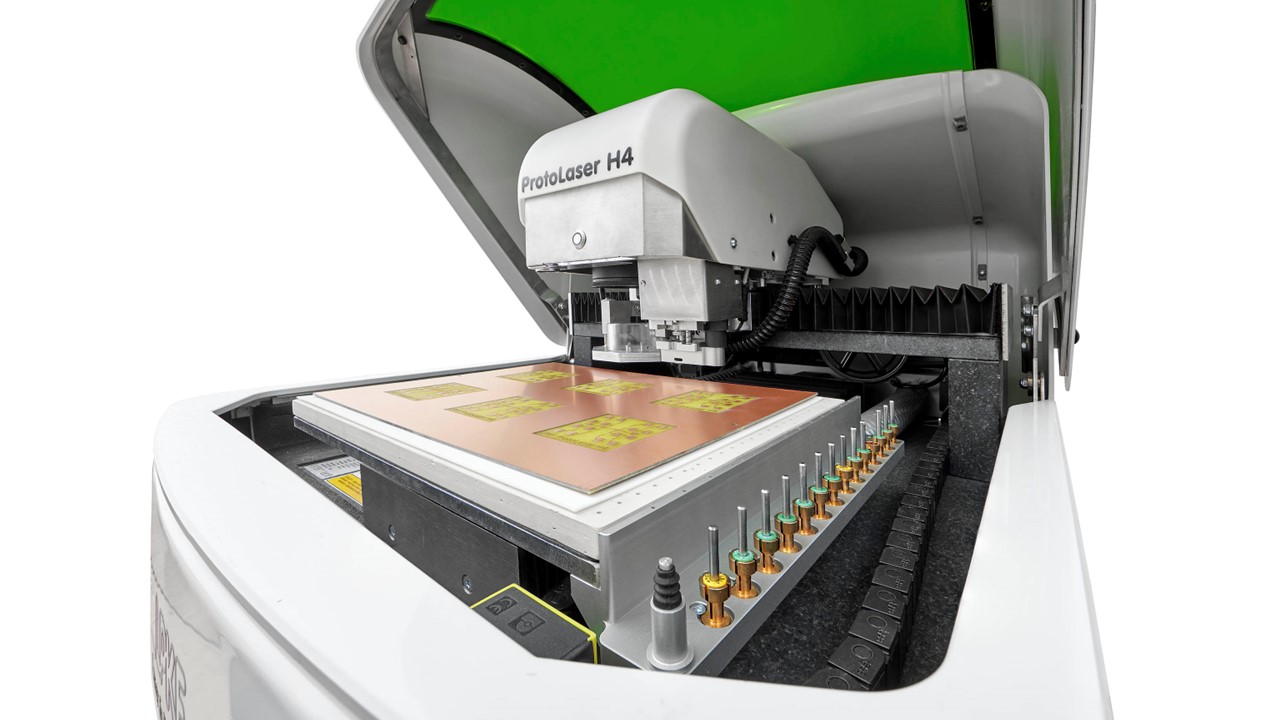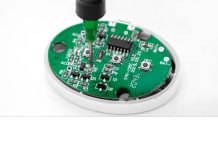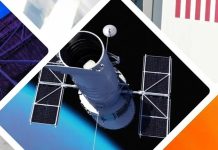The ProtoLaser H4, with a laser for structuring tasks and additional mechanical tools, is the link between pure laser devices and the mechanical structuring of circuit boards. The latest version makes some processes even more efficient and expands the range of applications.
The LPKF ProtoMats have been the benchmark for decades when it comes to chemical-free structuring of circuit board prototypes. The spectrum ranges from the smallest system for occasional work to the top model, which uses high spindle speeds to gently process even sensitive substrates.
The ProtoLaser H4 has so far been the link between mechanical PCB processing and LPKF laser processes. It can drill or cut mechanically thick substrates and multilayers using mechanical tools and combines this with the extremely fast and precise laser processing. The whole thing fits into a modern tabletop housing. In combination with the associated system software LPKF CircuitPro, even sophisticated prototypes can be produced in your own laboratory without etching chemistry.
With the new revision of the ProtoLaser H4, LPKF is consistently continuing this concept. The laser used has got a 25 percent increase in performance from 16 to 20 watts. Two important improvements have been implemented for mechanical structuring: The number of tool holders has grown from 6 to 14 in order to achieve a higher level of automation without manual tool changes. At the same time, LPKF has increased the spindle speed from 60,000 rpm to 100,000 rpm. This reduces mechanical processing times and enables, for example, 0.2 mm holes and faster separation of PCBs and flexible materials.
The environment around the two processing methods has also improved. The resulting material residues are completely removed from the work area thanks to an optimized extraction hood. An integrated MTM device (Material Thickness Measurement) records the height of the material. This reliably improves the focus position for laser structuring in a self-calibrating process. The z-height raised to 8 mm, so that the working area now grows to 310 mm x 230 mm x 8 mm. The diagonal travel speed has been increased again.
A new camera feature can now read any geometric shape on the circuit board as a registration mark. Any processing steps can be created from these positions. An extended version of the CircuitPro software is available for these features, which also includes export to the most important CAD data formats such as Gerber and DXF. “In addition to faster and more precise structuring results, we also wanted to expand the range of applications. Thanks to the new features, the LPKF ProtoLaser H4 is also well suited for circuit board repair, for example,” explains LPKF Product Manager Eric Scheidler. Sales are scheduled to start in September 2024, and LPKF is already accepting pre-orders.
To learn more, www.lpkf.com.










